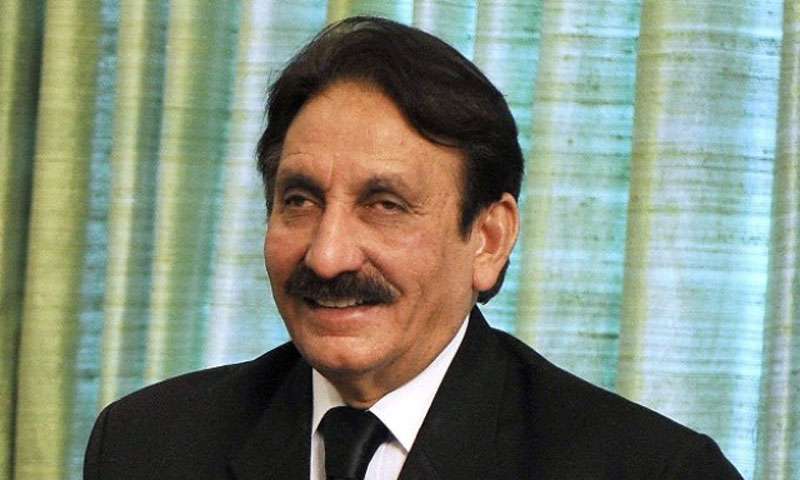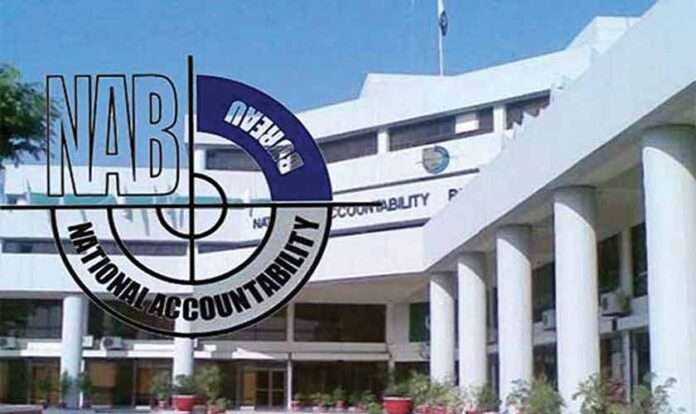The National Accountability Bureau Ordinance (NABO) under Section 5 describes a “public office holder’ as an individual holding, or have held, an office or post in the service of Pakistan or in connection with the affairs of the Federation, or of a Province, or of a local council constituted under any Federal or Provincial law, management of corporations, banks, financial institutions, firms, concerns, undertakings or in other institutions or organizations established, controlled or administered by or under the Federal Government or a Provincial Government.
A recent Supreme Court (SC) judgment says public property is a “public trust in the hands of public functionaries”. Banks hold large amounts of the public’s money (and public funds), defining bankers as govt functionaries subject to accountability by NAB. If such an individual dishonestly or fraudulently misappropriates or otherwise converts for his own use, or for any other person, any property entrusted under his control, or willfully allows any other person to do so to gain any benefit or favour for himself or any other person, or willfully fails to exercise his authority to prevent the grant, or rendition of any undue benefit or favour which he could have prevented by exercising his authority, constitutes criminal “breach of trust” under Section 405 of the Pakistan Penal Code (PPC), 1860 (Act XLV of 1860).
In every political regime influential people take undue financial benefits. Nationalized Commercial Banks (NCBs) and even private banks are forced or coerced into bending the rules to waive off bad loans, collaterals and securities are over-invoiced and money-laundering is ignored, such “imprudent” banking giving losses to the Bank and the shareholders. Misdemeanors include exaggerated invoices, over-pricing, fraud in pre-procurement, exceeding budgets in new branch openings, awarding contracts through unfair practices, money raffle schemes and fake “reality” shows, bad loaning and imprudent re-scheduling, waiving off interest, padding exorbitant advertisement budgets, kickbacks on organized foreign junkets and air bridges, vastly inflated expenditures under “others”, etc. Normally quite strict, SBP’s Inspection can be waylaid by falsifying financial results in connivance with unscrupulous external auditors providing window- dressing audit. Consider the fraud in the Multi-National Corporations (MNCs) Olympus (US$ 1.4 billion) and Toshiba of US$ 1.2 billion over several years, not possible without senior management and international audit firms being fully involved.
NABO’s various sections include willful default cases where 30 days’ notice to defaulters by banks is followed by State Bank of Pakistan (SBP) giving seven days’ notice. No response requires reference to NAB. With SBP objecting that NAB’s intervention was hurting economic activity by discouraging entrepreneurs, the cases referred by banks fell drastically after 2002 in contrast to NAB’s first four years. NABO’s Other sections pertain to misuse of authority by bankers to gain undue benefit for themselves. On its own accord or on a complaint by a shareholder, or even private citizens, NAB can start an inquiry without reference to SBP. The problem is that bankers on deputation with NAB’s “Financial Crime Investigation Wing” (FCIW) dare not annoy their bosses, can they blow the whistle on their corrupt bosses with their careers at stake?
NAB’s extraordinary powers of accountability of the private sector include (1) obtaining list of bad loans and scrutiny thereof (2) ensuring SBP’s audit process reports criminal activity (3) loans being re-scheduled and (4) losses through malafide intentions. SBP’s cautious approach on “bank fraud” inadvertently permits organized white collar criminal activity by bankers in collusion with their clients, some of it by incurring vastly inflated expenditures. Good corporate governance requiring Board Members “not to interfere with management”, Members are duped by the management by “creative” accounting.

Endemic in the 80s and 90s, financial scams came to almost a dead stop between 1999 and 2002, but started again in 2003, gaining momentum after 2008. NAB recently submitted 150 mega scams (being challenged as incomplete and evasive) dating back to 1985, mostly concerning our democratic rulers of today, to the Supreme Court (SC) on the SC’s instructions. Meant for his own survival, Musharraf’s black National Reconciliation Order (NRO) was subsequently declared illegal. Arousing the hopes and aspirations of the masses about the crooked being held accountable, former Chief Justice (CJ) Iftikhar Chaudhry conducted legal filibuster delaying the implementation of his own ruling overturning the NRO, conveniently allowing its beneficiaries to increase their powers by purchasing influence and continue looting the nation. Sanctimoniously insisting our Armed Forces strictly adhere to the Constitution, our politicians themselves blatantly violate its tenets at will.
Out of Rs 265 billion recovered in 16 years, Rs 181 billion were recovered from loan defaulters (fully 93%) in the four years beginning 1999, many defaulters preferring “Plea bargain”, to return some of the money rather than go to jail. With SBP restraining NAB post-2002, the statistics are quite damning. In the 12 years since, NAB has recovered only Rs 84 billion. After 2008, those accused by NAB circa 1999-2007 came to power, did anyone expect them to blow a police whistle on themselves? Many NAB officials, including a couple of former Chairman NAB, became filthy rich blackmailing bank defaulters (and others accused), allowing them “Plea Bargain” to line their own pockets. Has NAB done anything to persecute these rascals for “living well beyond their means of known income”? The political ambitions of NRO’s architect Pervez Musharraf allowed machinations by some of his corrupt colleagues shamelessly staining their uniform by became willing part of the system they had ostensibly come to correct. A crook is a crook, his previous rank and status notwithstanding. What about the concerned bankers who facilitated such scams? The “Plea Bargain” concept is a stain on NAB’s credibility.
White collar-criminals are few but a disgrace to our excellent banking profession. Comparing two banks, a 20-30% variation in overheads like administration, advertising, travelling, audit fees, “others” (whatever that is), etc should not arouse concern but substantially more in expenditures (50-100% or even more) is a sure sign of malfeasance, e.g. repair and maintenance, entertainment, rent and allied charges, legal charges, communications, etc. Why should “auditor’s remuneration” be more than 50% of a bank far larger? SBP and NAB must also conduct accountability why the concerned audit firm camouflaged this white collar crime? Discovered covering up of ENRON’s “creative accounting” resulted in international audit giant ARTHUR ANDERSEN ceasing to exist today.
Salutary examples must be made by the SBP, and if not SBP then NAB, to protect the public interest from white collar criminals in the financial services sector. Notwithstanding their influence and connections in society and govt, the black sheep among the bankers and their associates-in-crime should be sent to jail.




